A Rocky TIme In Iceland
As you pass over Iceland in the northern latitudes, the scene is continuously interrupted by peaks and dips. About the size of Virginia and a bit bigger than Ireland, because of Iceland's volcanic origins, it has a steamy makeup with volcanoes and lava fields aplenty. Its geographic changes in elevation reveal many an up and down feature, plateau, mountain peaks, and fertile lowlands. In 2008, at the depths of an economic depression, few Icelanders could have imagined a fast upward march to recovery from the pit of economic disaster it was experiencing.

Icelandic Financial Upturn 2011 - 2017
by john111
Bankruptcy is a rather common place event in the business world. A country nearly going bankrupt, well, that is another thing altogether. Since 2011, Iceland's economy has risen.
Icelandic Economic Landmarks, 2008-2011
A Tiny Country Struck By Economic Depression
The turmoil during the 2008-2011 economic events and depression offer the reader a better feel for the startling changes in Iceland from 2012 on.
- On September 29, 2008 Iceland's government took over Glitnir Bank, the third largest bank in Iceland. The bank was facing short term cash flow problems.
- On October 6, 2008, Icelandic Banks were no longer being traded on the stock exchanges. This includes Kaupthing, Landsbanki, Glitnir, Straumur-Burdaras, Exista and Spron.
- On October 7, 2008, the government of Iceland took over Landsbanki, the country's second largest bank.
- On November 20, 2008, 2.1 billion dollars is loaned to Iceland. The banking system collapsed in October. The loan was the first for a western European state since 1976.
- In February of 2010, Iceland's the unemployment rate soared to over 9% of the work force (15,000+). This was 13,500 more unemployed than at the start of 2008, prior to the huge banking problems.
- In March of 2010, Iceland's voters protested plans to pay the UK and Netherlands 4 billion euros (about $4,700,000,000). This was intended to be compensation for Icesave bank's collapse. The referendum was rejected.
- In April 2010, the IMF approved $160,000,000 more in aid which had been held up due to indecision as a result of the Icesave Bank collapse.
- In December of 2010, the government of Iceland agreed to pay over $4 billion to the UK and Netherlands due to the collapse of Icesave Bank. However, the payments will be complete by 2046.
- By 2011, the Icelandic economy shows its first signs of growth with an austerity plan which is credited with the growth. Unemployment began to fall fast.
Hold the Bankers Responsible
Assets and Confidence Come Back
Jailing bankers helped the government seize assets and resulted in a newfound confidence among the citizens. New banks that in the aftermath took over deposits were chartered differently. The government formulated two kinds of banks. One would take domestic, or Icelandic deposits, another would only take on foreign deposits. People from abroad who wanted higher interest rates would have to take on a bit more risk than the locals. This would protect Iceland's citizens from any further schemes to invest irresponsibly and ignorantly for high returns. This idea of a segregated pools of depositors based on risk has gotten attention in Europe and America.
Capital Controls
Capital Flight Prevented
As austerity worked through the system in 2011, signs of an improving unemployment situation began to appear. Like a railroad crossing barrier gate raising after a 3 year wait, a number of other events occurred to give Iceland more optimism about its future. In 2012, rating agencies raised the sovereign bond rating to BBB-, an investment grade. Iceland would now be able to more easily sell bonds. This ability is important to financing public projects, presumed to be positive for growing the economy. Also in 2012, public statements by the International Monetary Fund expressing admiration of what they saw as a recovery reflecting the soundness of the fund's monetary and financial advice. In many economists opinions, adherence to the principles put forth by the IMF was responsible for avoiding disaster.
The key to economic recovery was the institution of strict capital controls. For the most part, investment money could not flee the country. Capital flight causes business to fail. Not only does credit for necessary loans become scarce, but lost money could not be reinvested locally. Business growth ceases and companies go bankrupt resulting in large increases in unemployment. By requiring the the money to stay in country until stabilization took place, the economy did not collapse. The resulting unemployment would have been massive and would have undermined confidence in public institutions. Capital controls provided a decent interval to build the economy.
 | Top 10 Iceland (Eyewitness Top 10 Travel Guide) Covering all of Iceland's major sights and attractions in easy-to-use top-10 lists that help you plan the vacation that's right for you, this newly revised, updated, and redesig... |
The Currency Dives
Foreign Markets Watch
As things began to look tenuous in late 2007 into 2008, the exchange rate of the Icelandic Krona began to fall. That is, against other foreign currencies the Krona was losing value. Currencies that float are traded in the foreign exchange market. When it requires more and more of one currency to buy another, the value of that currency drops in foreign markets. Foreign goods wound up costing Icelandic citizens more. If the currency falls precipitously to very low levels, it can have terrible effects on an entire economy. All eyes in foreign markets were on Iceland.
But something fortuitous happened. With capital controls adopted, folks could visit Iceland very cheaply. Tourism boomed! Iceland is a beautiful nation with scenic fjords, volcanoes, mountain peaks, and glaciers - only some of the grand sites to experience. Visitors were eager to enjoy a discounted visit where they could spend their money and take in the grandeur that is Iceland.
 | Iceland and the International Financial Crisis: Boom, Bust and Recovery (International Political ... In the years leading up to the Crash of 2008, Iceland had been triumphed in world business media as an economic miracle. Its new breed of Viking Capitalism had become rock stars... |
 | Gambling Debt: Iceland's Rise and Fall in the Global Economy Gambling Debt is a game-changing contribution to the discussion of economic crises and neoliberal financial systems and strategies. Iceland’s 2008 financial collapse was the fir... |
Tourism Blossoms Unexpectedly
Two Million Tourists in 2017
One of the changes that resulted from the currency devaluation is that tourism became Iceland's number one economic driver. Heretofore, fishing had been the biggest economic contributor to gross domestic production. Historically fishing has employed 5% of the country. Tourism is now 10% of GDP and accounts for 30% of exports.
After the 2008 onslaught of problems, the currency started to slowly rise.
From 2016-2017, some estimates are that the krona gained 15% against the dollar and 19% against the euro. Though still affordable, it will be interesting to witness any effects of the rising of rates. Iceland expects to see 2,000,000 tourists in 2017.
Iceland
The Consequences to Fishing
This then has brought the viability of fishing and processing into question, since the cost of doing fishing business has gone up. At these increasing rates, it may be beneficial to ship some fishing related tasks overseas, cutting jobs. When economies suffer wrenching change there are macro changes up and down, and smaller ones that are unexpected. Iceland had shipped one fifth of its fish catch to England. Whether it will continue to provide as much is in question.
https://soapboxie.com/economy/Iceland-and-Icelandic-Banks-in-Debt-Financial-Crisis
Events of 2013 - 2015
- In January 2013, charges against the government of Iceland for failing to guarantee minimum compensation to Dutch and British depositors were dropped by a court in Europe. Recall that Icelandic banks had paid the required legal insurance premiums for Euro protection against loss of savings.
- In February of 2013, bankers in Iceland were adjudicated prison sentences for malfeasance - malfeasance which led to the 2008 financial debacle.
- In March of 2015, Iceland's GDP was once again what it was before the 2008 downturn.
- In October of 2015, the three banks that had been mainly responsible for creating the financial troubles agreed to steps providing for the lifting of capital controls.
The Soccer Indicator
Support for sport takes a back seat during financial hard times. But an indication of how far Iceland has come may be seen in an ability to support their professional soccer team. This was Iceland's first entrance into a major tournament. The national team beat Holland and then beat Austria 2-1. On June 27, 2016 Iceland defeated England in the Round of 16, advancing to the quarter-finals, where they lost to France 5–2. This was Iceland's first entrance into a major tournament. Iceland finished eighth in the tournament, with two wins, two draws and one defeat. This was a pretty amazing feat for a nation of 300,000.
Silicon Metal and Polysilicon
As of 2015 -2017, Iceland has worked to become a major supplier of silicon metal and polysilicon used in technology. Solar voltaic cells are made of polysilicon. Silicon metal, which is actually a semi-metal, is a great conductor of electricity and therefore is used in many ways in electronic equipment. Glass is made of silica, and it is also used to manufacture abrasives. This natural resource is of great value in a modern economy. Silicon metal and polysilicon is being developed and will be a big contributor to the economy.
Aluminum and Geothermal Power
Iceland is basically an island sitting on a foundation of basalt. It is the volcanic rock which is responsible for the formation of oceanic islands. From the depths, volcanic action sends steam to the surface. This steam can be harnessed to produce electricity. Iceland has a never ending potential for geothermal energy which translates into cheap energy. Iceland's cost of energy is 30% less than the U.S. One of the main goals of the government was to increase the variety of national economic engines and using their energy to provide electricity to aluminum smelters was a main goal.
While environmentalists have been upset by the utilization of Iceland's energy for aluminum processing, the government has been concerted in its efforts to provide economic opportunity to the island. In 2011, aluminum processing accounted for one seventh of the GDP of Iceland and it used more power than the entire population. The government built a series of dams and a massive reservoir to seal the interest of aluminum companies to reside in Iceland. Production of aluminum has increased year over year steadily.
The Pacific Northwest, like Iceland with its abundance of hydroelectric power, has become an area of server farm activity. Cheap electricity for powering servers that link computers is an alluring proposition. The power consumption by such farms is nothing short of huge. Iceland has learned this and as of 2017, it is aggressively trying to attract server farms.
Conclusions
- None of us can run a home balance sheet without governors on speculation and spending. To allow banks to take on risk that can threaten the entire population of a nation is irresponsible. We have seen this in the U.S., in Europe, and more particularly in Iceland. In the case of Iceland, the investment acumen of bankers was at worst nil, and at best extremely lacking. Guaranteeing overseas investing that is reasonable requires oversight that guarantees the public is protected from excessive risk. A country's survival in the modern world depends on it.
- Before taking action, a country must analyze the possible impact of investment decisions globally. Anymore, one country's actions can have profound effects on other countries throughout the world. This fact has become extremely acute today.
- There should be an ongoing discussion of the role of government in regulating banks. The speed with which one nation's actions can affect another, and the devastation it can export to another, requires a critical view of the equilibrium between regulation and deregulation. Rules for intervention should be constantly updated so governments know exactly when to intercede on behalf of the public. There isn't a lot of room for dilly dallying anymore.
- It is this writer's opinion that rapid growth in the banking industry is not a good thing. Rapid growth and risk are tied hand in hand. Public institutions will never be able to keep up with the speed with which financial institutions manipulate the intent of legislation. The speed with which banks can expand should be limited in an attempt to allow the legislative and judicial branches of government to cope. Banks have one goal overriding all others - profit. Governmental institutions have many more constituencies to try to protect.
- All nations should contemplate the effects of capital controls on the economy of Iceland. Thoughtful analysis of capital controls is of utmost importance in preparation for another worldwide great recession, or depression.
- And finally, all nations need to watch the result of slowly ending capital controls in Iceland. Understanding the final results of the loosening of capital controls is paramount in preparing for any future possible global economic crisis. Unexpected negative consequences should be noted, while positive consequences should be revealed through detailed examination and documentation by economists throughout the world.
Why Iceland Is Ideal for The Data Center Industry
Sources
The Miraculous Story of Iceland, by Matt O'Brien, 6/17/2017, retrieved from https://www.washingtonpost.com/news/wonk/wp/2015/06/17/the-miraculous-story-of-iceland/?utm_term=.2d926fbd1e00
Iceland's Economy: Its Bankruptcy and Financial Crisis, How a Volcanic Eruption Helped Iceland Recover, Kimberly Amadeo, August 15, 2017, https://www.thebalance.com/iceland-financial-crisis-bankruptcy-and-economy-3306347
Iceland's Recovery Will Be Tough to Sustain, by Leonid Bershidsky, March 15, 2017, https://www.bloomberg.com/view/articles/2017-03-15/iceland-s-recovery-will-be-tough-to-sustain
Iceland's Near Collapse: What Can We Learn, by Reyna Gobel, Investopedia, https://www.investopedia.com/articles/economics/09/iceland-bankruptcy.asp
Iceland Profile- Timeline, staff, http://www.bbc.com/news/world-europe-17386859, 6 December 2017
What Happened Iceland's Economy, by Francesco Wang, B.A., July 30, 2015, https://www.quora.com/What-happened-to-Icelands-economy, University of Manchester, Quora
Euro 2016: How Tiny Iceland Reached Europe's Pinnacle, by Motez Bishara, June 6, 2016, http://www.edition.cnn.com/06/06/2016/football/iceland-football-euro-2016-gylfi-sigurdsson-eidur-gudjohnsen-island/index.html
Iceland and Aluminum, Dennis Simanaitis, July 6, 2017, https://simanaitissays.com/2017/07/06/iceland-and-aluminum/, SimanaitisSays.com
World Finance - the voice of the market, Failing banks, winning economy: the truth about Iceland's recovery, Elizabeth Matsangon, September 15, 2015, https://www.worldfinance.com/infrastructure-investment/government-policy/failing-banks-winning-economy-the-truth-about-icelands-recovery
IMF Survey: Iceland's Recovery: Can the Lessons Be Applied Elsewhere?, October 24, 2011, http://www.imf.org/en/News/Articles/2015/09/28/04/53/sosurveyartf
You might also like
Who Won the Vietnam War?President Dwight Eisenhower's domino theory in Southeast Asia was the predomi...
Reflections on the Monarch's DeathThe events surrounding Queen Elizabeth's death merit reflection on how we are...
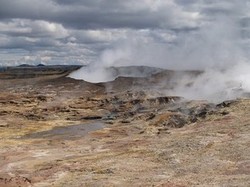

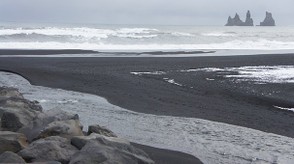
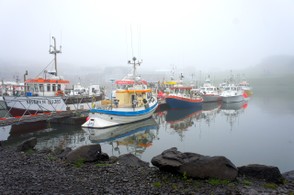
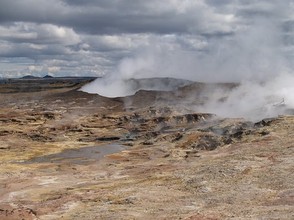

 Who Won the Vietnam War?on 05/27/2018
Who Won the Vietnam War?on 05/27/2018
 An Arizona Man's Wizzography - Few Regretson 02/10/2012
An Arizona Man's Wizzography - Few Regretson 02/10/2012
 A Proposal for a Third Party Candidate for President of the United Stateson 11/30/2011
A Proposal for a Third Party Candidate for President of the United Stateson 11/30/2011

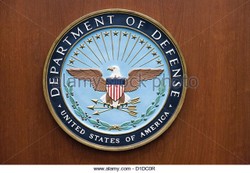

Comments
I suggest, today, on 3/202020 that folks reread this article, wisdom is slow to absorb.
A very well put together piece. Thank you. Your conclusion would make a good small business plan!
It is of particular interest to us in here in the UK as we are so affected by Iceland. There have been fishing disputes for years known as the Cod Wars and then the initial refusal to pay back loans from UK. At this time also, a volcano erupted and sent its ash south stopping UK flights. The favourite joke at the time was ;-
" Iceland .... they take our cash and send us ash "
It is true that vacationing for Icelanders becomes more expensive. But, there are only 300,000 of them, and the majority are happy with a devalued currency.
blackspanielgallery
When the local currency devalues, foreigners see the country as a haven. Their currency buys more than it used to. The destination is considered a haven for opportunity on vacation.
when a currency devalues it is also hard to visit other places, since things cost more other than the country with the devalued currency.